7. Christian World View as an Apologetics Framework (ii)
Lesson Objectives:
In this lesson we will continue our discussion of twelve cultural "mountains", or spheres, of world view influence, focussing on:
- politics and government
- education
- marriage and family
- science
Christians in the modern world are called and able to create and influence public opinion, but they need to understand the environment and differentiate between the kingdoms of the world, in which they are enmeshed, beliefs that have been ingrained in them from their childhood, and the Kingdom of God, of which they are citizens. Many confuse the two, either because of their family backgrounds, cultural heritage, collective histories, denominational movements to which they belong, or the theologies they have embraced over time.
We are called to be "salt" and "light", influencing our world culture and not being captivated by it. Most Christians operate in the "market place", where they need the wisdom of God to know how to live and interact (many of those whose lives they touch are not Christians and do not share their beliefs), do well at what they are involved in professionally and personally, while seeking to interpret their environment from the perspective of the "mind of Christ". Nearly all of Jesus' life and ministry were in the marketplace.
This week we will see how a Christian world view locates itself in the spheres of public life/politics/power, education, marriage & the family and science. (As usual) the issues are not cut and dry.
Politics, Power and Government


Human politics is about power. Political institutions (which are interested in securing and exercising global, governmental, economic and social power) and political doctrines are in constant flux. From the time of Jesus Christ, and across all societies, the Christian church has been impacted by attempts to politicise its view of the world, its role and what it believes, and to make the Christian community a capital "P" or small "p" political agency or tool. There are power structures set against the church today.
Government is a God-given and necessary institution. Western governments usually have prescribed powers and obligations, which can be tested at law. That said, "Caesar" (representing the world system) has his role, but is never content being constrained in any way. Nor will Caesar ever be reconciled to the effective dual citizenship of believers (legally citizens of nation states but with a concurrent heavenly citizenship; see Philippians 3:20).
According to the Christian worldview, both the individual and social order are important to God, mankind, and society. God raises up both godly and ungodly people into positions of leadership, for His purposes (see Daniel 2:21; 4:17). God has ordained social institutions including family, church and state to maintain law and order, and teach love, respect, discipline, work, and community. He has delegated the right to rule to human agencies. Within the Christian worldview politics and government focus both on society as a means for human cooperation and security, and on the individual as a vital part of social institutions.


Western Christians sometimes infer that democracy and systems of law based (originally, in whole or in part) on Judeo-Christian heritages are more authentic than secular systems, and that our national future and "Christian destiny" are intertwined.
"Our society's values are based on our Judeo-Christian heritage, which are ultimately outlined within the Bible. Australian Christians recognise this. We are unapologetic about basing our policies, and core values upon this, our heritage."
(http://australianchristians.com.au/about/)
The Preamble to the Australian Constitution reads:
"Whereas the people of New South Wales, Victoria, South Australia, Queensland, and Tasmania, humbly relying on the blessing of Almighty God, have agreed to unite in one indissoluble Federal Commonwealth under the Crown of the United Kingdom of Great Britain and Ireland, and under the Constitution hereby established...."
Parliament commences each day's business with the President of the Senate or Speaker of the House of Representatives reading the following (as a precursor to the more combative business of Parliament):
"Almighty God, we humbly beseech Thee to vouchsafe Thy special blessing upon this Parliament, and that Thou wouldst be pleased to direct and prosper the work of Thy servants to the advancement of Thy glory, and to the true welfare of the people of Australia. Our Father, which art in Heaven, Hallowed be Thy name. Thy kingdom come. Thy will be done in earth, as it is in Heaven. Give us this day our daily bread. And forgive us our trespasses, as we forgive them that trespass against us. And lead us not into temptation; but deliver us from evil: For thine is the kingdom, and the power, and the glory, for ever and ever. Amen"
Christians should do all they can to influence government and decision-making. If governments or politicians are not Christians this does not invalidate them. Conversely, leaders who are Christians may or may not be good leaders. Non-Christians are not, by definition, poor leaders.
We are commanded to pray for our leaders and to pray that God's will be done (Matthew 6:10).
"I urge, then, first of all, that petitions, prayers, intercession and thanksgiving be made for all people - for kings and all those in authority, that we may live peaceful and quiet lives in all godliness and holiness. This is good, and pleases God our Saviour, who wants all people to be saved and to come to a knowledge of the truth." (1 Timothy 2:1-4)
We are told to obey our rulers (Romans 13:1-2; see also 1 Peter 2:13-15). Decisions by those in power do not necessarily serve, or undermine, Christian goals.
While Jesus was unequivocal in describing how Christians ought to live in the world, He discouraged his followers from confusing political ambitions with eternal realities. It is the same today. Acknowledgement of "God" by political leaders can be merely civil religion, for political ends; ie not personalised. Jesus proclaimed a spiritual revolution, an eternal Kingdom of God.
The writer to the Hebrews reinforces this theme, referring to the Patriarchs:
"All these people were still living by faith when they died. They did not receive the things promised; they only saw them and welcomed them from a distance, admitting that they were foreigners and strangers on earth. People who say such things show that they are looking for a country of their own. If they had been thinking of the country they had left, they would have had opportunity to return. Instead, they were longing for a better country - a heavenly one. Therefore God is not ashamed to be called their God, for he has prepared a city for them. (Hebrews 11:13-16).
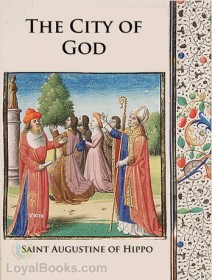 Augustine of Hippo (354-430) emphasised similar things in his seminal work, The City of God (early 5th Century AD). The book was a response to allegations that the rise of Christianity (and Christian values) had brought about the decline of Rome. Augustine set out to show that Christians have different allegiances and look for "another" city, the realm of Christian hope.
Augustine of Hippo (354-430) emphasised similar things in his seminal work, The City of God (early 5th Century AD). The book was a response to allegations that the rise of Christianity (and Christian values) had brought about the decline of Rome. Augustine set out to show that Christians have different allegiances and look for "another" city, the realm of Christian hope.
Christians who are available, able and inclined ought to get involved in the political process, as good corporate citizens, motivated by the mind of Christ. However, the underlying mission of the church lies not in changing the nation through political reform, through one party or another, but in changing hearts through the Word of God and the transformative work of the Holy Spirit. This has been the mandate of the Christian community from the outset; we should not re-imagine the mandate to fit a Western model or history.
Western Christian thought is posited on the belief that it is the God-given right of every citizen, regardless of race, gender or economic status, to elect to public office those who will govern them. That said, millions of Christians live in societies where they are not permitted to do so. We must not limit our thinking and categorical conclusions to what is familiar to us and overlook the rest of the world.
Moreover, when believers think the growth and influence of Christianity can somehow be allied with government policy, they take sides and corrupt the mission of the church. Our Christian mandate is to spread the gospel of Christ. While there are nations with high proportions of professing Christians, there is no such thing as a "Christian nation."
- "Christian reconstructionism" advocates the imposition of a theocratic form of government and the restoration of the Law of Moses as normative in Western societies. Proponents, such as the late Rousas John Rushdoony (April 25, 1916 - February 8, 2001), misunderstand the Bible's teaching on these matters.
Only as the hearts of individuals in a culture are changed will the culture begin to reflect change. When that occurs, there are more Christians in the community, but the community is still not a "Christian" function. All too often, non-Christians in such communities have been targeted in non-Christian ways. In the name of Christ.
Most Christians identify with one "tribe" (or nation) or another. We must avoid being highjacked by agendas if we wish to keep our integrity and touch society as a whole. Jesus was clear in delineating between human power ambition and the application of discipleship.
Conflicting views of power:
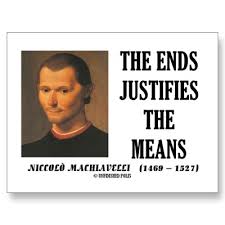
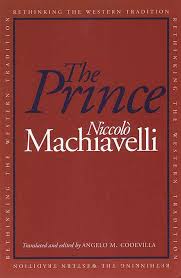
"The rulers of the Gentiles lord it over them, and their high officials exercise authority over them. Not so with you. Instead, whoever wants to become great among you must be your servant, and whoever wants to be first must be your slave." (Matthew 20:25-27)
"Whoever serves me must follow me; and where I am, my servant also will be. My Father will honour the one who serves me." (John 12:26)
"Learn from me, for I am gentle and humble of heart." (Matthew 11:29)
Jesus Christ
"Those princes who have done great things have held good faith of little account, and have known how to circumvent the intellect of men by craft, and in the end have overcome those who have relied on their word."
"Every one sees what you appear to be, few really know what you are,"
"A prince never lacks legitimate reasons to break his promise."
Nicolo Machiavelli, 1469-1527
Few Christians end up becoming actively involved in party politics; this is a pity. However, there are thousands of Christians believers in the vast bureaucratic frameworks of countries like Australia. They are usually constrained in what they are able to say and do publicly (in the media spotlight), but their capacity to influence policy and operational structures and standards behind the scenes, with some environmental constraints, is considerable (and should never be underestimated). There is a definite place for Christians serving in roles of authority in public service departments, being salt and light for Christ, even if they are not permitted to demonstrate their faith overtly in the workplace.
Education
Education is designed to provide information and shape thinking. On one level it is the process of receiving or giving systematic instruction, especially at a school or university.
In our day we believe that everyone has a right to a basic education; as Christians we link this to that person's ability to fulfil their God-given potential.

By the 17th century, Jesuits (the Society of Jesus, founded in 1540) had become some of the greatest teachers in Europe, with missionaries in the Americas, Asia and Africa (including as part of European colonialism and to counter Protestantism). The Jesuits helped build schools and universities, design churches and even produce a unique style of art and architecture. The goal of spreading the Catholic faith is still their primary objective, and they do it through missionary work and education. The influence of the Jesuits in the sphere of education continues. Australian Prime Minister Tony Abbott attended primary school at St Aloysius' College at Milson's Point, Sydney, before completing his secondary school education at St Ignatius' College, Riverview (both are Jesuit schools).
Robert Raikes was the father of the Sunday School movement (July 1780). His life is celebrated by a monument located near Charing Cross station, just off The Strand, in London. The movement started with a school for boys in the slums. Raikes had been involved with children incarcerated at the county poor law part of the jail at that time and saw that crimes would be better prevented than cured. So he took steps to educate children.
Raikes saw schooling as the best intervention. The best available time was Sunday as the boys were often working in factories the other six days (child labour was practically universal). The best available teachers were non-clergy. The textbook was the Bible, and the originally intended curriculum started with learning to read and then progressed to the catechism. His work (in one form or another) impacted millions of children and was a catalyst for public (and publicly funded) education in England.
Most of the famous universities in the West had their beginnings in Christian education.
Today, education is usually organised by governments: primary schools, secondary schools, universities, with religious schools providing a sectarian focus in the context of officially agreed curricula. A small percentage of parents educate their children at home (home schooling), usually for ideological reasons.
Many (but not enough) Christian parents believe that education begins in the home, including learning about the Bible and spiritual disciplines. Inculcating Christian values in the security of the home can help futureproof children and get them ready for living in a non-Christian society, interacting with non-Christians and making the right choices. Christian Schools can reinforce the worldview education that begins in the home. A private school with a Christian foundation can provide an environment that is spiritually edifying, with curriculum and instruction designed to achieve the explicit goal of helping its students develop a Christian worldview and apply this worldview in all of life, inside and outside the classroom.
There is a spiritual dimension. In Christian schools teachers can share their faith and teach their worldviews and they can live Christianly, in their teaching quality and their relationships with students and colleagues, consistent with the faith, principles, and love. That said, parents who send their children to Christian schools need to get them ready to live and operate in a largely secular world and not leave it to Christian teachers to lay foundations of faith.
 Whether children learn in state-based or Christian schools, the goal is to integrate learning and to think systemically about critical issues in a sceptical world.
Whether children learn in state-based or Christian schools, the goal is to integrate learning and to think systemically about critical issues in a sceptical world.
Educational organisations, messaging, programs, standards and outcomes are areas in which Christian world views can be subtly (but persuasively and authoritatively) eroded. Non-Christian schools provide worldview education, but they are required to teach some positions many Christians do not agree with, including evolution (all too often presented as factual), sex education, secular ethics, alternative religions and humanistic ethics.
Christian parents who send their children to state schools (most do so) need to be aware of this and redouble their efforts to give their children a sound education in Christian beliefs and values at home.
Sociologists believe there is strong relationship between human thought and the social context in which it is formed. It is common for young people to tailor their world views to match those of people they admire, whose friendship they desire, and whom they wish to acknowledge and admire them in turn. If teachers and schools (not to mention peers) promote certain things as "cool", or "truth", young people's views are capable of adapting radically and they may jettison their original beliefs. World views can easily develop (or change) at school or university.
Christians believe in the need to submit our learning to the Lordship of Jesus Christ, who gives wisdom and spiritual stability to all who ask for it. The Holy Spirit can preserve our faith.
Marriage and Family
The traditional Christian marriage ceremony typically starts with words like:
"The Bible teaches us that marriage was ordained long ago by God, beginning in the Garden of Eden. Its importance was confirmed many times after that, including in the presence of Jesus Christ at a wedding feast in Cana of Galilee, where he performed his very first recorded miracle. Marriage is a unique relationship, declared by the Bible to be honourable among all people. It is one of the most powerful human commitments to long-term relationship, friendship and support."
The official Australian Marriage Act 1961 adds the following compulsory words:
"My name is xxxx and I am duly authorized to solemnize marriages according to law. yyyy and zzzz, before you are joined in marriage in my presence and in the presence of these witnesses, I am to remind you of the solemn and binding nature of the relationship into which you are now about to enter. Marriage, according to Australian law, is the union of a man and a woman to the exclusion of all others, voluntarily entered into for life. Do you understand this?"
The Christian world view regards marriage as a relationship to be entered into reverently and soberly, with eyes wide open, and in the fear of God, humbly and confidently seeking His strength and blessing; a beautiful gift from God, to be protected and treasured and celebrated by those who make a commitment to live together as husband and wife.
Marriage involves shared and individual interests, strengths, differences, foibles and hopes, loving mutual support, deep and abiding trust and a life-long commitment. This is our foundation, and it works. Christian marriage has a "God element".
Governments around the world (within their cultures and legal systems) usually support the idea of marriage and the family, as a strong, caring, supportive environment, for spouses and children, and as a basic unit of a cohesive society. According to Australian law, "marriage is the union of a man and a woman to the exclusion of all others, voluntarily entered into for life".
In parallel, however, are strong agendas (that cross political divides) to break down those traditional norms and adopt variations, eg including same sex marriage (accepted as"equal" to heterosexual marriage, in law), common law marriage, polygamous or serial marriage. Appeals to "equality" appeal to fair-mindedness and egalitarianism, but are a diversion from the underlying issues.

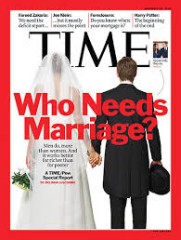
Christian weddings in the West seem to be declining as a proportion of overall relationships solemnised in one form or another. Heterosexual marriage is being devalued by sections of our culture and media organizations, particularly those on the left, are often derisive of marriage. Social groups opposed to marriage seek to use the law to attack marriage and sanction those who insist on traditional family values. Blessing same-sex unions will only further devalue intact family values.
Make no mistake, attempts over the past half century to do away with Christian marriage are not unique. Marriage and the family have always been under attack. Nor have governments necessarily officially supported Christian views of marriage and family. It only takes one generation for foundational institutions such as marriage to be damaged. It is therefore concerning to discern whole sections of the Christian community refusing to take a stand against the diminution of marriage.
Some argue that this will come across as judgemental and dilute the message about God's love for all. It is true that God loves all people, and that love is good. Promoting love does not equal endorsing homosexuality ("gay love"). Gay lobby groups use the expression "marriage equality" in their attempts to secure legal recognition of same sex marriage (after all, who would argue against equality"?). This a red herring. Gay relationships are not marriage. The Christian view of marriage promotes equality and long-term absolute mutual faithfulness. The essence of gay liberation is based on promiscuous sex.
Media depictions of Christian opposition to same sex marriage often disparagingly (or with feigned indignation) cite Old Testament texts about executing homosexuals, without addressing why heterosexual marriage is preferred. Legalizing same-sex unions defies the authority of the Bible. The sexual union between one man and one woman within the safe framework of marriage is designed by God to be a perfect fit anatomically and emotionally. Men and women who are happily married experience greater fulfilment and well-being than their single, divorced or widowed friends, and their children (when they come) tend to grow up much better adjusted. Heterosexual marriage provides the best example of gender complementarities and teaches children the value of gender differences and the importance of mutual respect for the opposite sex and committed relationships.
Christian marriage underscores the commitment husband and wife have to one another. It sets moral and sexual boundaries, which protect the partners and encourage stable homes for them and for their children. The Christian marriage is blessed in that husband and wife can look to the Bible for guidance and the Christian community for encouragement and support. Sociologists have found that there is a significant difference in marital stability between those who take their faith seriously and those who don't. They claim the divorce rate among sincere, active Christians is significantly lower than the general population.
Marriage and the family are vital parts of the bedrock of society. When a man and woman come together in a life-long exclusive relationship of commitment and trust, and raise children born of their physical union in an atmosphere of love and support (and loving discipline), they are continuing to build on a solid foundation that will weather just about any storm. There is no closer set of bonds. There will be disagreements, friction, need for forgiveness, re-shaping of individualities (every relationship has ups and downs), opportunities to grow and mature, but this is all good. ("Compatibility" is only part of the story, and a distraction; incompatible people can still make greater marriages.) The Christian view is that sex may be practiced only within marriage. Married men and women are required by God not to betray one another's trust and engage in sexual activity with anyone else, regardless of the circumstances.
It is not necessary to be a Christian to be married. But Christians have a view of marriage that elevates it above most other relationships. The Catholic Church builds on the nature of marriage as described by Paul in Ephesians 5, ie reflective of the relationship between Christ and the church, an indissoluble union, and does not recognise divorce.

Science
Like education, science (whether as an element of the educative process or in government or industry) can be applied objectively or co-opted to serve the world views of those who use it. Science can deliver us a better world (agriculture, transport, communications, economics, mining, design, and a host of other disciplines), but is can also give us the capacity to destroy cities or manipulate human life.
Science helps us to make rational choices. It also helps us to get our beliefs in line with the world around us. After all, the quest of science is a true description of the world. Because decisions made based on true beliefs will be better ones, science gives us a chance to make rational choices by portraying a true picture of what is. Science cannot force people to use these beliefs in their decision-making, but it at least can make them available. Science also gives us tools that we can use in decision-making, improve our health outcomes, discover solutions to serious illnesses and improve our outlook in many areas. We ought to celebrate the fact that more scientists are alive today than at any other period of human history (possibly greater numerically than in the entire human story.
The Bible is not a book about science. It is often assumed that the relationship between Christianity and science is a troubled one. This view is reinforced by popular accounts of such historical episodes as the condemnation of Galileo, which saw the Catholic Church censure Galileo for teaching that the earth revolved around the sun.
Scientism is the view that only scientific claims are meaningful. By extension, it also teaches that only what can be scientifically understood and verified can be true. Any philosophy that treats science as the only means of acquiring knowledge is faulty. Christians believe that reality includes what we see and also what we don't see.
"... we fix our eyes not on what is seen, but on what is unseen, since what is seen is temporary, but what is unseen is eternal." (2 Corinthians 4:18)
Scientific developments have also created a raft of ethical issues that collide with what Christians believe the Bible teaches. In developing a Christian world view we must be careful to separate out issues that are clear contraventions of conscience, and those that are rejected just because they are different. The Christian community is not against change, exploration, discovery or development. Christians should get involved in science and development.
Let us embrace innovation, for the good of all, while not jettisoning faith or revelation. Christian faith can have a positive impact on science, such as in the development of modern medical ethics. Many early scientific leaders were devout Christians, as are some scientific leaders today. Science can enhance the spiritual life of believers. Christians rejoice in scientific discoveries that reveal the glory of God the creator and change the world for the better.
This course makes no attempt to double up on Christian scientific apologetics, about which a lot of material is available elsewhere. Check it out.
That said, in a course like this, we need to overview some of the key issues in relation to the beginning of everything. God being at the base of everything is a foundational teaching of Christianity; undermined that and the integrity of the structure is seriously threatened.
"In the beginning God created the heavens and the earth (Genesis 1:1)
Key issues:
- The universe is finite, but God is infinite, above all (Ephesians 4:6)
- The universe had a beginning, but God is eternal.
- He calls all things into existence, from non-existence (ex nihilo). Genesis 1, 2; Psalm 90:2; 102:25; Isaiah 40:26; Jeremiah 10:12; Amos 4:13; Matthew 19:4; John 1:3; Romans 1:25; 1 Corinthians 11:9; Colossians 1:16; Revelation 4:11; 10:6
- There was no compelling force for God to create. He did it according to His will and purpose - Acts 17:24; Colossians 1:16; Revelation 4:11; 10:6
- for His pleasure - Revelation 4:11
- to reflect His perfection and goodness - Genesis 1
- to declare His righteousness - Psalm 50; 97
- to reflect His glory - Psalm 8; 19:1; Ephesians 1 (Romans 1 shows us how man has refocused on the actual works of creation, rather than the Creator)
- The creation of man and woman was a special creative act. God made Adam the overseer of all things.
- The Bible does not attempt to "prove" creation. It is not a book about science. But it is posited on a conviction that the Creator brought about everything, ex nihilo, ie "out of nothing".
There are debates about whether, how and over what period of time God created. The teaching of the Bible is that He was/is the creator, the source of all life.
There is a separation between God and creation, the Bible teaches that the creation is good, unlike dualism which teaches that God is good and the material universe is evil.
God's hand is continually at work in the human story. He sustains the creation He made. The New Testament shows us that he did/does this through Jesus Christ (Hebrews 1:3; Colossians 1:17; Acts 17:25).
Concepts of Creation
| Proponents | Summary of Position |
|---|
| Creation myths | Numerous cultures have myths about the origin of the universe and the beginning of human history. |
| Atheism | The universe is material, independent of the act of any being.
"Nearly all peoples have developed their own creation myth, and the Genesis story is just the one that happened to have been adopted by one particular tribe of Middle Eastern herders. It has no more special status than the belief of a particular West African tribe that the world was created from the excrement of ants" (Atheist Richard Dawkins, The Blind Watchmaker: Why the Evidence of Evolution Reveals a Universe Without Design, 1986, p. 316).
|
| Plato |
The cosmos is supremely beautiful and good. "God" arranged matter that had pre-existed from eternity.
|
| Parsees (Zoroastrianists) |
Dualism - the universe is an arena in which two incompatibles (good and evil) struggle for mastery. Originated in Persia.
|
| Pantheism |
God is one with the universe, which is a physical manifestation of his animating deity.
|
| Panentheism |
God is everything in the universe, but is greater than the universe.
|
| Big Bang Theory |
The universe originated billions of years ago from the explosion of a single mass of material that became condensed in the galaxies.
|
| Nebular Hypothesis |
The solar system began as a hot, rotating, gaseous spheroid that subsequently cooled and shrank.
|
| Planetismal Hypothesis |
The earth began when an exploding bold of gas, shooting from the sun, combined with a passing star. Like a number of theories, this does not explain where matter came from in the first place.
|
| Steady state theory |
The universe has always existed. It has been steadily expanding, with hydrogen being created continuously.
|
| Gnosticism |
Gnosticism was a form of dualism, which made a sharp distinction between the "good" spiritual world and the "evil" physical / material world. It flourished in the first centuries AD. It was characterized by its adherents believing in "gnosis" (lit. knowledge, or special knowledge of God), revealed to them so that they could attain salvation.
Gnostics believed that a "good" God could not touch an "evil" world, so He sent Jesus, through a series of "emanations" less holy than Himself.
|
| Manichaeism |
Named after Mani ("Apostle of God", c. 216-276AD), who drew on Christian, Buddhist and Zoroastrian beliefs.
The belief was dualistic; it saw the world as a struggle between good and evil, light and darkness, God and matter.
|
The ancient Greeks focused on what exists and how (= mechanics, process); the Bible focuses on who created and why (= design, purpose).
When did Creation Occur?
Bishop James Ussher (1581-1656; Church of Ireland Archbishop of Armagh and Primate of All Ireland between 1625-1656) added up the known genealogies of the Bible and estimated the world was created around 23 October 4004 BC (Annales veteris testamenti, a prima mundi origine deducti, or Annals of the Old Testament, deduced from the first origins of the world", 1650).
The Bible neither makes nor supports such claims. Some of the genealogies seem to be incomplete or overlap. Also, we do not know how long Adam and Eve lived in Eden before they sinned.
Remember, Genesis is not a complete history book per se (even though it catalogues real events); how could it be? It does not draw global chronologies together systematically. Christian scholars who believe in creation (essential to a Biblical world view) have different opinions about what precisely happened during creation.
Some beliefs in the debate:
| Six 24 hour days |
"The evening and the morning..." (repeated throughout Genesis 1) denote days as we know them today (24 hour cycles).
|
| Progressive Creative |
A previous creation was destroyed (through judgment or a natural catastrophe. There is a gap between Genesis 1:1 and 1:2.
According to the Gap Theory, an unspecified period of time passed between Genesis 1:1 and 1:2, during which God created a "pre-Adamic" race who lived on the earth until He destroyed them in judgment. There is no Biblical support for this theory.
|
| Day-Age |
"Days" in Genesis were actually "ages" during which God created.
|
| Progressive Creationism |
The days of Genesis 1 and 2 were moments, ages of indeterminate length.
|
| Alternative Day Age |
The days of Genesis were 24 hours, however they were separated by vast geological ages, during which God's initial commands were carried out.
|
| Eden only |
The Genesis accounts had nothing to do with the rest of the earth, but simply records what God did in one place.
|
| Overlapping Ages |
God is eternal; therefore time does not mean to him what it means to us. Days in Genesis are not time periods but creative acts. Under this approach emphasis is not on the actual order of events in Genesis.
|
| Revelation Day |
The days of Genesis refer to days in Moses' life, when God revealed his account of creation to Moses. Not to the length of time taken to finish creation.
|
Complex? Check it out. But have considered answers when discussing the topic with unbelievers.

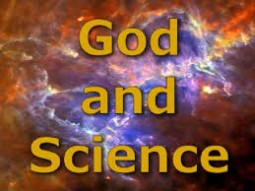
We turn next to how a Christian world view approaches the earth & the environment, economics, arts & literature and the way we interpret history. In each of these areas there are prevailing views (and vested interests) that reflect popular secular thinking, but there is an alternative that reflects the mind of Christ as revealed to us.




 Augustine of Hippo (354-430) emphasised similar things in his seminal work, The City of God (early 5th Century AD). The book was a response to allegations that the rise of Christianity (and Christian values) had brought about the decline of Rome. Augustine set out to show that Christians have different allegiances and look for "another" city, the realm of Christian hope.
Augustine of Hippo (354-430) emphasised similar things in his seminal work, The City of God (early 5th Century AD). The book was a response to allegations that the rise of Christianity (and Christian values) had brought about the decline of Rome. Augustine set out to show that Christians have different allegiances and look for "another" city, the realm of Christian hope.



 Whether children learn in state-based or Christian schools, the goal is to integrate learning and to think systemically about critical issues in a sceptical world.
Whether children learn in state-based or Christian schools, the goal is to integrate learning and to think systemically about critical issues in a sceptical world.




